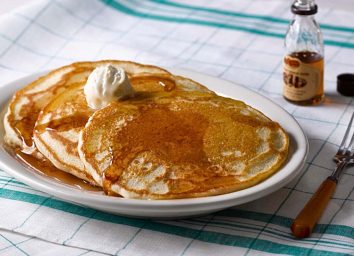The Perfect Winter Salad Does Exist—Here’s How To Make It at Home
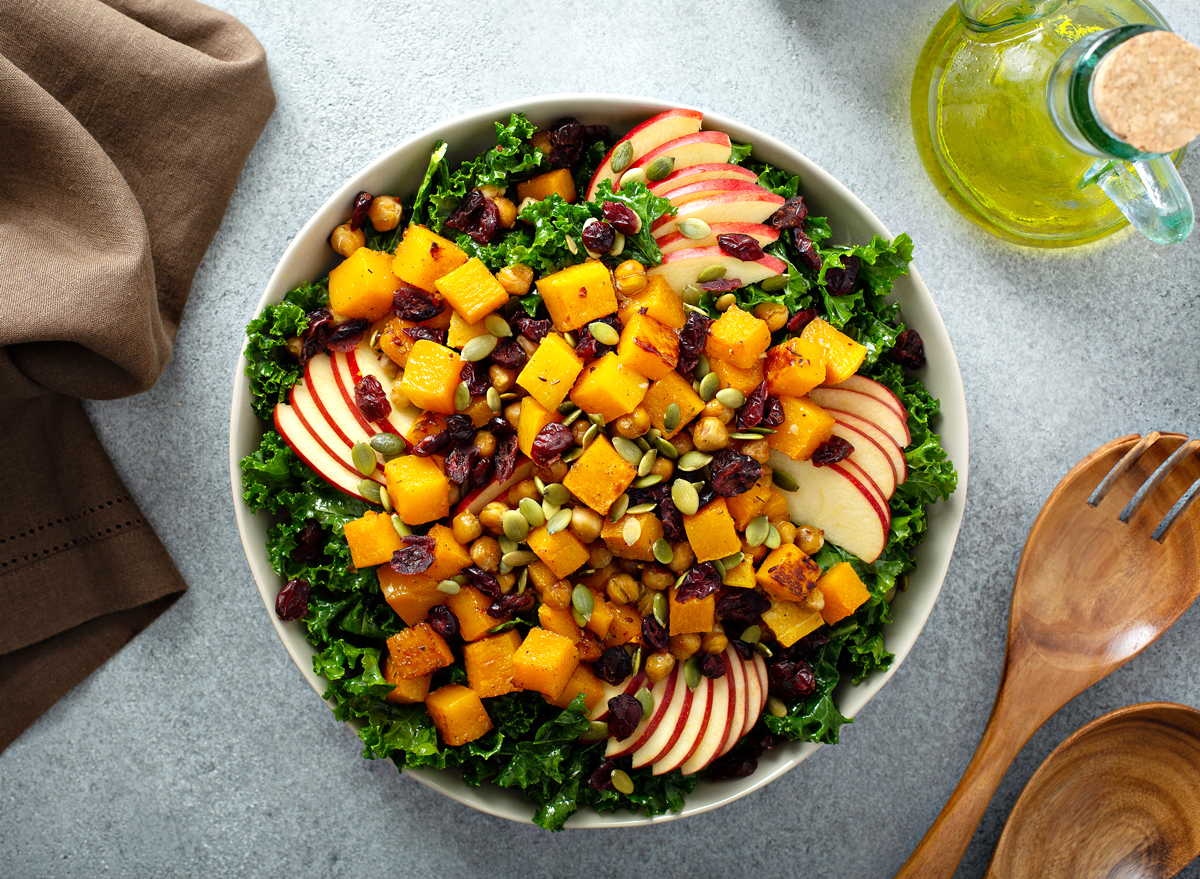
Stop thinking of salad as a pile of iceberg lettuce topped with shredded carrots and a few grape tomatoes. Make it meaningful. Give it purpose. Build it so it counts as dinner, not an afterthought side dish.
A hearty, nutrition-dense winter salad for dinner ticks all the boxes for good gut health, muscle-making, convenience and efficiency, and deliciousness. Oh yeah, and it will keep your belly satisfied until breakfast, so it is perfectly fine as a stand-alone meal.
Here are your blueprints below, and for more outstanding salad ideas check out 35+ Healthy Salad Recipes for Weight Loss.
Construct a foundation.
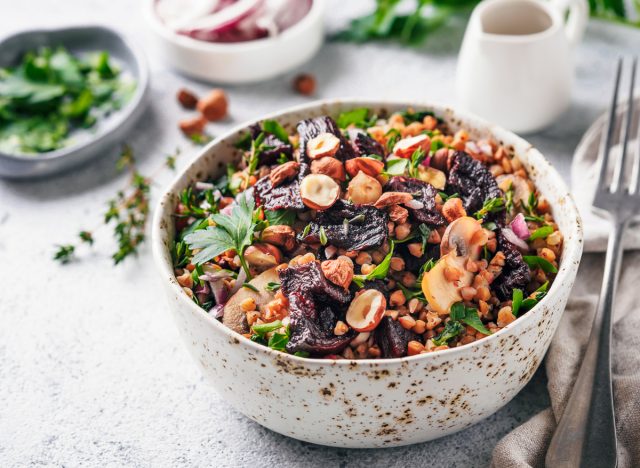
Instead of your typical base of chopped greens, build your foundation with a whole grain such as quinoa, farro, barley, or spelt. Whole grains fill your belly with protein and fiber, keeping you feeling satisfied all night long. “Eating whole grains helps with weight control and can significantly lower your risk of stroke, diabetes, heart disease, inflammatory diseases, stomach and colon cancer and high blood pressure,” says registered dietitian nutritionist Jen Haugen, RDN, owner of Jen’s Joyful Kitchen, author of the cookbook Dinner, Done!.
Root for vegetables.
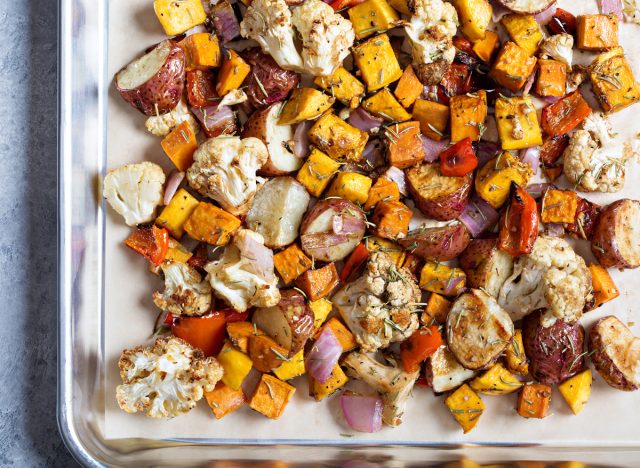
Roasted root vegetables add delicious depth to a salad and heartiness. You can roast sweet potato, acorn squash, and Brussels sprouts together in one pan. Cut them into chunks first, then toss them in the pan with extra virgin olive oil and salt. Roast in a 400°F oven for about 25 minutes, turning often. Don’t want to roast? Chop up some green leafy vegetables like kale, chard, and collards to top your quinoa base.
Bean me up, Scotty!
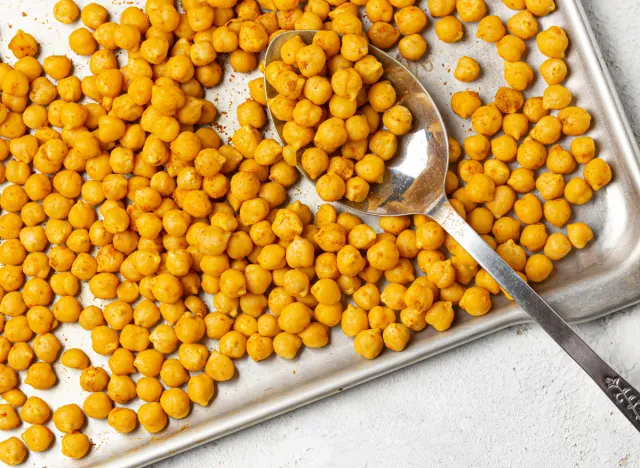
Bulk up your meal with more muscle-building protein derived from plants. Add chickpeas, black-eyed peas or chickpeas, all rich in protein and fiber. Pick beans with this ranking of 14 High-Protein Beans.
Pop in some sweet pizzazz.
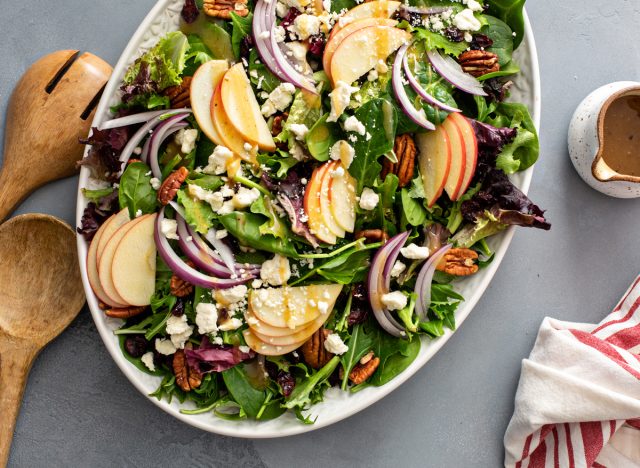
Add a touch of tart sweetness—and a pop of color—with a winter fruit such as antioxidant-rich pomegranate or apples. These days you can get nice berries year ’round, so other options include raspberries, strawberries, and blueberries. Dried cranberries will work in a pinch, too.
Drizzle the dressing.
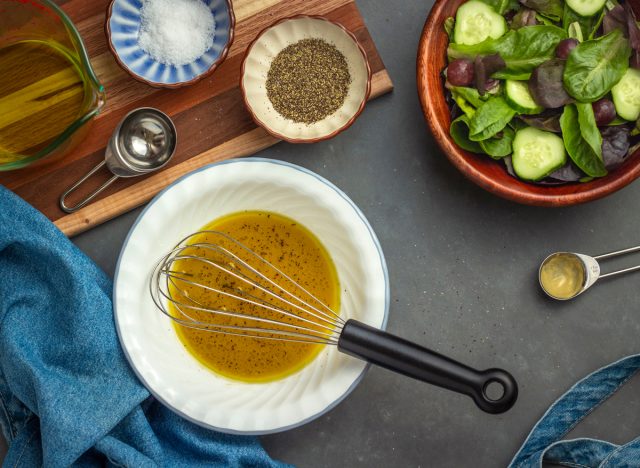
Let your salad stand on its merits. You have a lot of great-tasting ingredients in there, so don’t drown it all in a bath of sugary salad dressing. Make your own light vinaigrette: Start with extra virgin olive oil or avocado oil. Mix in acids like apple cider vinegar, balsamic vinegar, or fresh-squeezed orange juice. Add a touch of sweetness like local honey or maple syrup. Optional to thicken: a spoonful of mustard or tahini. Season with salt, pour into a mason jar, seal it and shake well.
Add low-cal flavor.
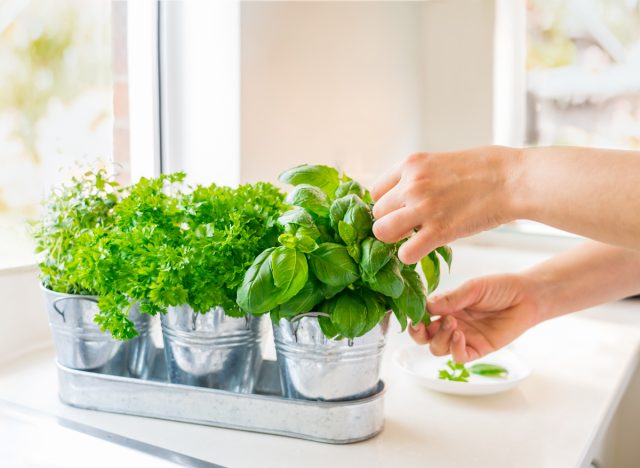
Refreshing, colorful, nutritious, and super-low in calories, herbs amplify any salad’s flavor quotient. But they’ve gotta be fresh. Try parsley, cilantro, mint, and basil to name just a few.


